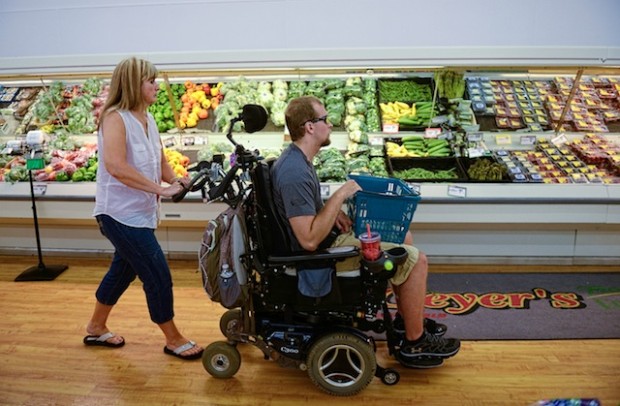
A Lifetime of Commitment
Wounded Warrior Project
Today, America recognizes the heroes who have selflessly served and sacrificed for this country, and Wounded Warrior Project® (WWP) joins a grateful nation as we say thank you. We honor the men and women who have bravely worn the uniform and remind them they are not forgotten. But how will we honor and empower them tomorrow and, more importantly, for a lifetime?
The road to recovery is unique for every warrior, and it can be especially difficult for the most severely injured veterans, who often rely on a caregiver for long-term support and assistance. The WWP Annual Alumni Survey found three out of 10 WWP Alumni need the aid and attendance of another person because of their injuries and health problems; among them, more than one-fourth need more than 40 hours of aid per week. What will happen to those warriors when their caregivers are no longer able to provide that care and support?
To provide those with the greatest need opportunities to define what independence means to them, it will take community support and public responsibility. WWP is stepping up to say we will be there. As part of our ongoing commitment to provide for those who have honorably served our country, WWP has committed $30 million in 2014 to cover both the immediate and long-term needs of 250 of the most severely injured veterans who, without this funding, are at the greatest risk of institutionalization. Provided by generous donors across America, this 2014 financial commitment will serve as the model for the decades of support WWP is prepared to provide to the most vulnerable warriors of this generation, ensuring they are able to live rewarding and independent lives.
The funding supports two innovative programs, the Independence Program and the Long-Term Support Trust, to safeguard care and support as injured veterans and their families confront their long-term needs and goals.
The Independence Program works with service providers in each warrior’s community to assist in identifying and achieving individualized goals, which restore meaningful levels of activity and purpose into their daily lives. The Independence Program pairs a specialized case manager with the warrior and family to develop a personalized plan that targets the warrior’s needs or interests. For many, this is the opportunity to participate in the types of daily tasks and meaningful activities many people take for granted. A roadmap is developed for each warrior based on their interests and goals for independence and quality of life.
The Long-Term Support Trust provides a dedicated funding source to ensure the most severely injured warriors have access to quality support and services in the least isolated setting possible after their family members or caregivers are no longer able to provide care. This inaugural year will see up to 80 warriors enrolled in the trust, where they will have access to secured funding to cover the costs of up to 20 years of support services designed to keep these warriors in their homes or the least restrictive settings possible. The goal is to empower each warrior to live as independently as possible, with the highest quality of life and the finest, most compassionate care available. Through the trust, resources such as case management, life-skills training, home care, transportation, respite care, education and career-training, and residential programs will be available to injured veterans. No other organization is offering this type of long-term support to the most severely wounded service members and their families.
Current rehabilitation programs typically invest heavily in the beginning of a warrior’s recovery from traumatic brain injury, spinal cord injury, or other neurological conditions, but not during the longest and most defining phase of recovery, which begins with the return home. For warriors working through the compounding effects of both visible and invisible wounds, this longer-range, more strategic approach for care and independence is needed. In many instances, for the cost of one month in an in-patient institutionalized brain injury rehabilitation program, the WWP Independence Program can provide a year’s worth of community-based support on a weekly basis to an individual warrior.
We have severely injured warriors transitioning home from rehabilitation programs, many of whom are in their 20s and 30s with decades of life ahead of them. WWP is stepping up to make sure they are cared for and provided opportunities and support to live life to the fullest for decades to come.
When we say we are committed for a lifetime, we mean it.
To learn more about Wounded Warrior Project, visit woundedwarriorproject.org.




